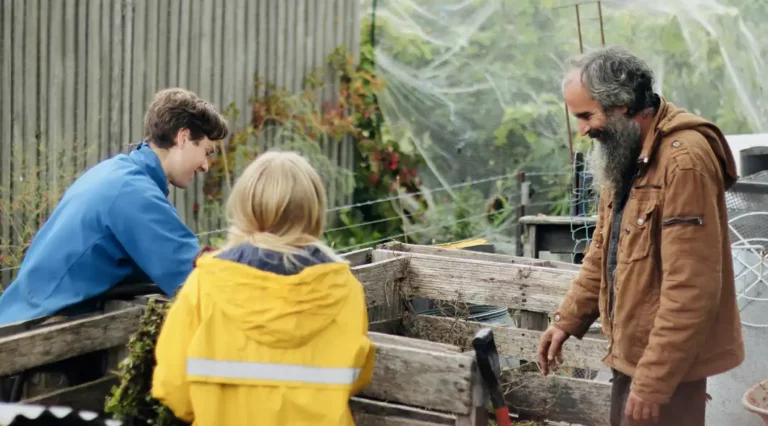- the intense and fickle nature of dental pain
- widespread fear and phobia of dental treatment
- the high cost, lack of insurance and deferral of care and treatment
- the overwhelming importance of personal consumption and teeth cleaning habits
- the link to soil mineral balance
Below, I use my own experience (of failure more than success) to illustrate some key points that may help other avoid the cavities and side effects of poor teeth and consequently reduce dependence on specialist treatment and the money it requires. Holmgren/Dennett Family Case Study I grew up with my mother’s complaints about her poor childhood diet and annoying dentures, constant reminders to clean my teeth, a low sugar health diet, fluoride tablets and regular dental check-ups. I had no childhood fillings and my wonky teeth straightened out by themselves to the amazement of our family dentist. The genetics of my grandfather Holmgren who had all his teeth when he died at 89 and food grown on the limestone soils of the Western Australian coast probably helped.
As an adult I grew slack about teeth cleaning believing my genetics and diet were enough. By contrast Su with her poor genetics was frequently at the dentist for remedial attention. When we moved to Hepburn and our son Oliver was born we intensified our commitment to eating mostly our own food. Our diet included a lot of acid fruit, vinegar preserves and our habit of snacking during the day on fruit. I used to joke about spending nothing on doctors but needing to work to pay Su’s dental bills. In 1994 after teaching a four-day permaculture course, Su had a dental emergency that cost all the money I had just been paid for the course. My occasional check-ups led to warnings about gum disease symptoms (bleeding) and the need to better brush teeth, reinforcing Su’s tactful suggestions.
Around the same time I made a critical mistake in the use of too much dolomite lime in the garden, which probably led to years of vegetables fruit with marginal calcium levels (see ‘Hard won lessons of mineral rebalancing’ text box in Chapter 16, Building and maintaining soil fertility). Around the same time I was shocked to see Oliver getting cavities after a diet with zero sugar or fizzy drinks. By the early noughties I was getting cavities filled by a dentist with a strong commitment to natural health. He reinforced the message about gum disease that was now classified as moderate, gave me interdental brushes and mentioned the newer evidence about acids in the diet being almost as dangerous as sugar. Combined with my already strongly developed theory about soil mineral imbalances, this rang alarm bells for our home grown diet. Su was through the crisis of her collapsing teeth and trauma of dentures, and we continued efforts to get the soil balance right, reduced the use of vinegar and made half hearted efforts to reduce the consumption of our delicious fresh dried and bottled fruit (all with no sugar as usual) and greater efforts at teeth brushing. Oliver started to take responsibility for his own teeth and had a partial rejection of his parent’s alternative health ideas. His new dentist was a young, second generation professional passionate about her work and up with all the latest science. Her careful examination showed most of Oliver’s composite fillings were failing and gave him the evidence that amalgam was the only durable solution and that the risks were minor. I joined him on a pathway that led to high fluoride toothpaste, tooth mousse to reharden softened enamel, regular electric tooth bushing and further moderation in acid in the diet. These all seemed symbolic of a reversal from self-reliant culture but nothing like the dental bills for the replacement and new fillings and teeth cleaning that made Su’s look like small change. We joked how the Holmgren’s were the main financial support for the local Community Health Centre where our brilliant dentist plied her trade.
The bright spot from a resilience point of view was that after Oliver stopped having local anaesthetic for fillings. I thought if he can, I should too. Apart from helping give valuable feedback to assist the dentist, it dissolved some of the fear about medical procedures without anaesthetic, which might feature in energy descent nightmares. Occasionally the pain was intense, rarely excruciating but not for long, mostly it was tolerable and the experience gave a great sense of freedom.
The take home lessons of this story are:
- prevention is better than cure
- teeth cleaning is complex but essentially routine mindfulness
- high acid diets, including too much acidic fruit, can be detrimental to teeth
- snacking, especially foraging for fruit, increases risk of decay
- mineral balance becomes critical for health of the whole body not just teeth, especially once we get most of our food from a locality, let alone a single garden
- the fear of pain can be worse than the pain


I have been on a path of healing my teeth, and trying to prevent decay. It has lead me to this article and Weston. A. Prices work, a dentist in the 1920s who went around the world to study traditional diets. His book: nutrition and degenerative diseases is a great read (free on google)
I found your comment on local anaesthetics for dental procedures very interesting. I rarely agree to anaesthetic injections despite vehement encouragement of the dentist. It really is as you say shortish procedures with some pain. I have always put this down to bad memories of huge metal syringes that hurt like hell in the 60s when I was a child.